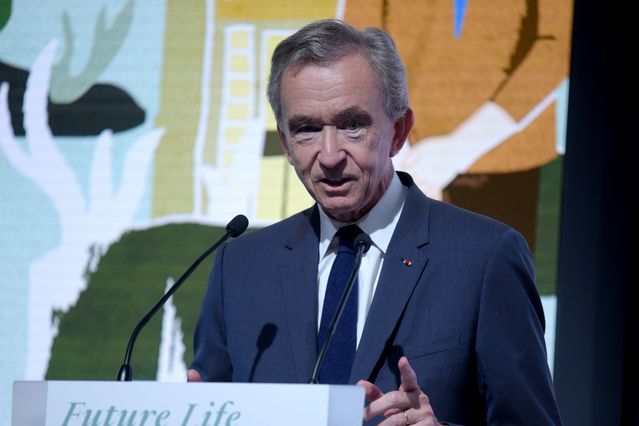By Jack Denton and Callum Keown
Jeff Bezos, the founder of Amazon.com and its largest shareholder, is no longer the richest person in the world. He wasn’t topped by Facebook ‘s Mark Zuckerberg, or Microsoft ‘s Bill Gates, or even Berkshire Hathaway ‘s Warren Buffett, but by a man you might not have heard of: Bernard Arnault.
The 72-year old Frenchman is the founder, chair, and chief executive of LVMH Moët Hennessy-Louis Vuitton (LVMH), a luxury-goods conglomerate covering fashion, jewelry, cosmetics, and wines and spirits. Its brands include Louis Vuitton, Christian Dior, Bulgari, Tag Heuer, Sephora, Hennessy, and most recently Tiffany—and it’s had a fantastic year.
Between his control of LVMH owner Christian Dior and a family holding company, Arnault owns around 47% of LVMH, which has a market capitalization of €339.5 billion ($402.9 billion).
LVMH stock has climbed more than 35% so far in 2021, and has surged 140% since its lows of March 2020.
That rise has helped catapult Arnault back to the top of the world’s rich list, trading the top spot with Bezos several times in recent months. As of Monday, Arnault is worth $186.3 billion, $300 million more than Jeff Bezos and more than Tesla chief executive Elon Musk’s $147.3 billion, according to Forbes.
Amazon’s 7.6% post-earnings stock slump on Thursday handed the title back to Arnault, as Bezos’ fortune fell by $13.9 billion in one day.
How has LVMH done so well? It begins with a crash. The luxury-goods sector was one of the first to be badly hit by the pandemic last year, due to the industry’s reliance on consumers in China, where the virus originated, and other parts of Asia. The sector took a secondary hit when global travel all but dried up, as Asian tourists were suddenly unable to splash out on shopping trips to fashion hotbeds like Paris, London, and Milan.
But as China led the economic recovery from the depths of the pandemic, luxury-goods spending roared back–and has been on a tear ever since. In 2020, one of the worst years for corporate earnings in recent memory, LVMH reported full-year profit from recurring operations of €8.3 billion, a 28% decline from 2019 levels, and even returned to profit in the second half of last year.
That’s continued into 2021: in late July, LVMH posted profits of €7.6 billion for the first six months of 2021, up 44% from the first half of 2019 and more than four times 2020 levels.
A resurgence in luxury spending has come as the world’s richest people have become even richer through the pandemic, with total wealth rising to $431 trillion in 2020—driven by savings, stocks, and real estate.
The ultrarich segment—people with assets of $100 million or more—is now the fastest-growing, according to analysts at Boston Consulting Group. There were 6,000 new ultrawealthy individuals created amid the recent global surge in new wealth, and they hold 15% of total global wealth, up from 12% in 2019, according to analysts at BCG.
BARRON’S
Write to Callum Keown at callum.keown@dowjones.com














